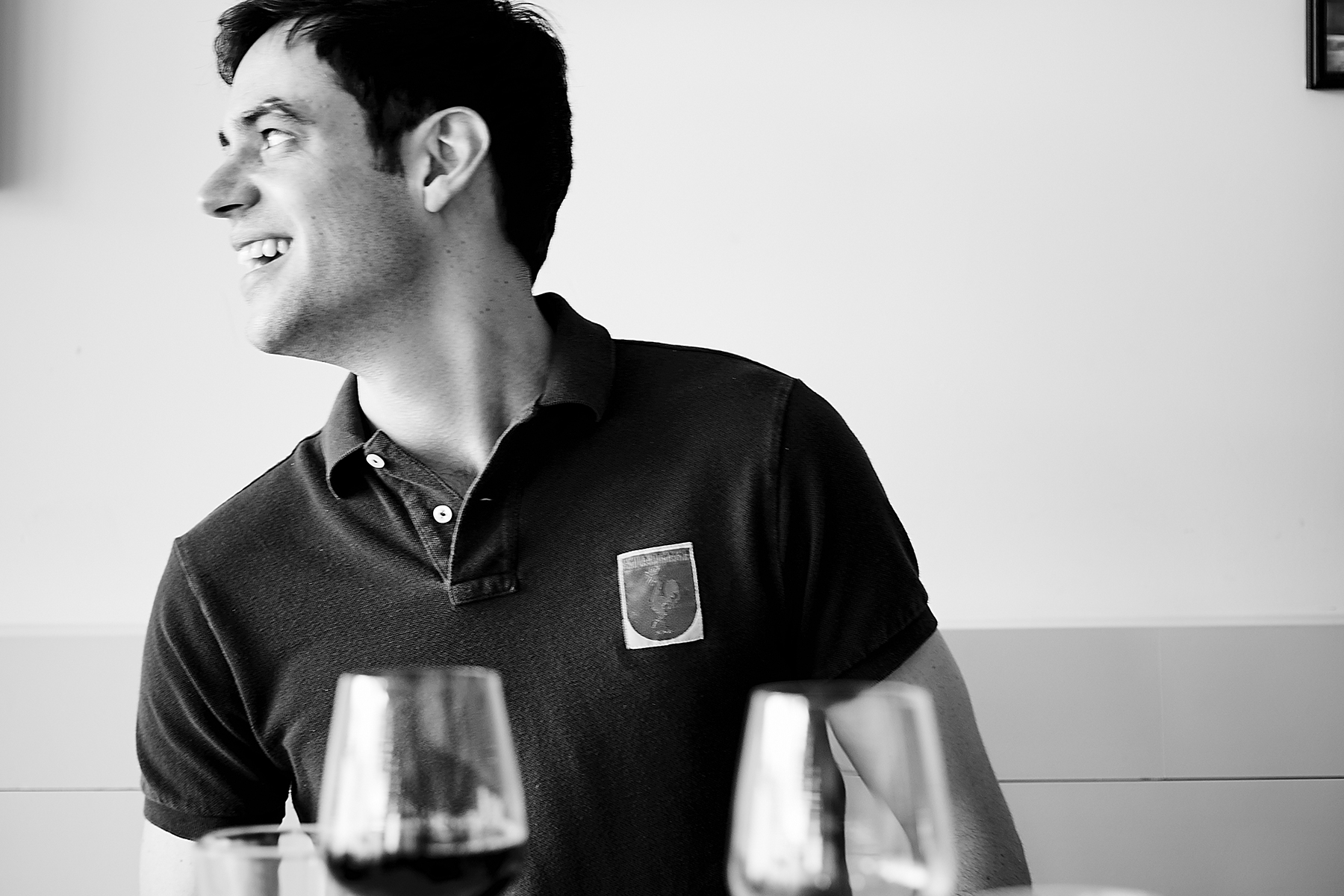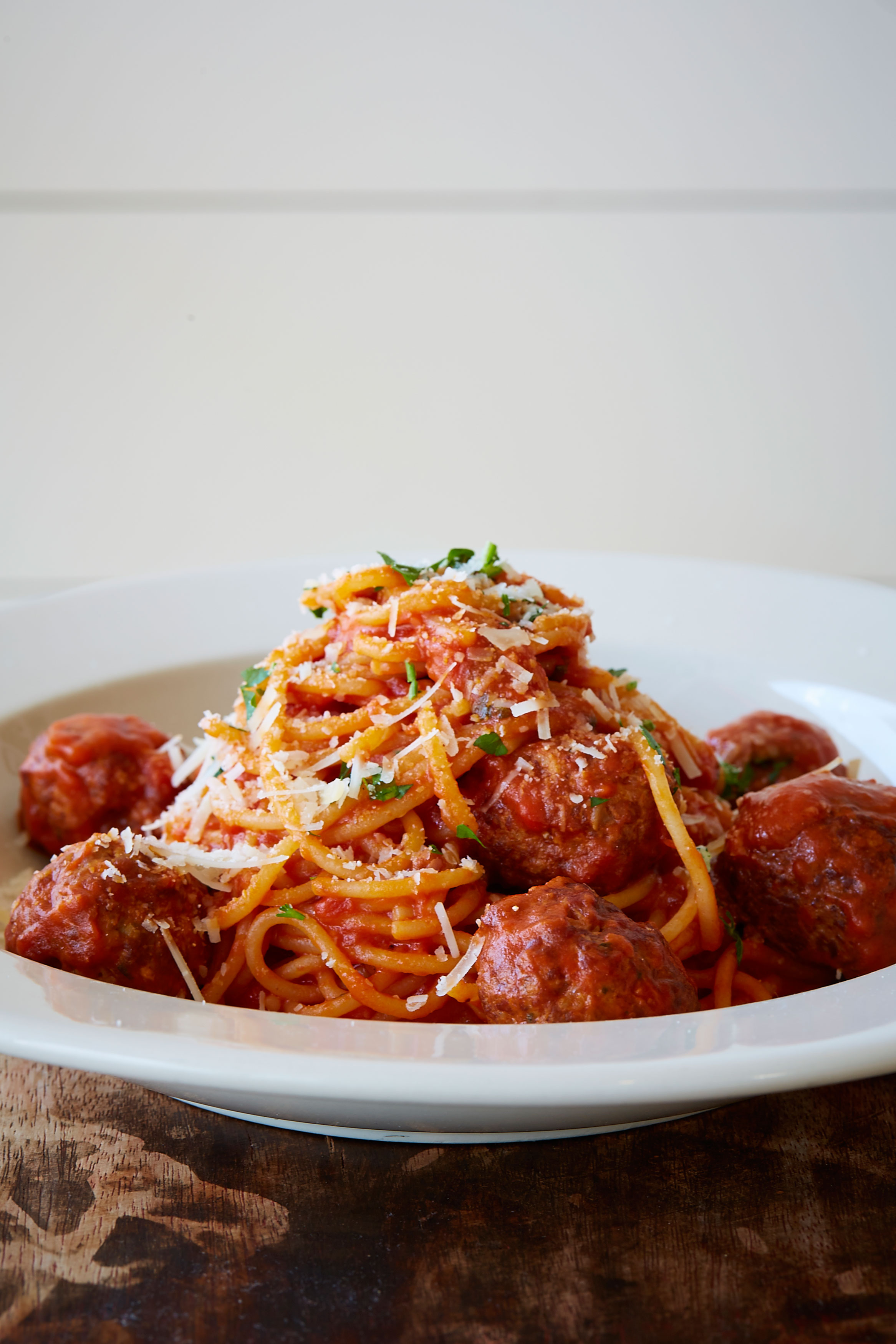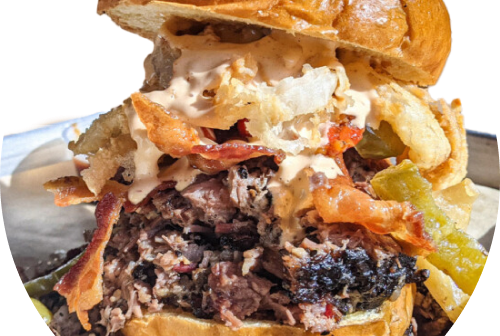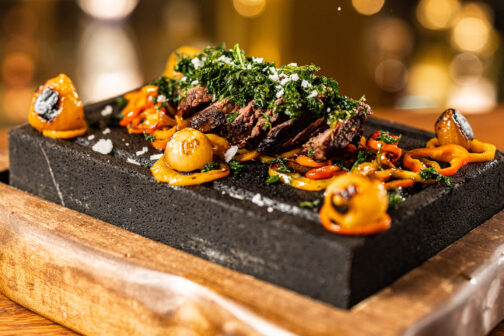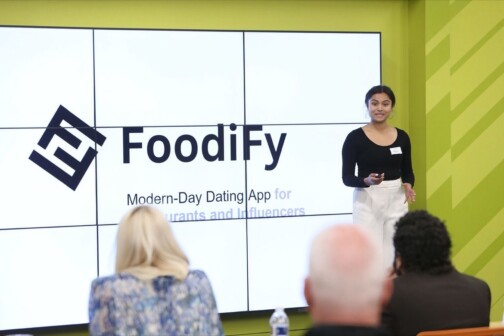Last week, the Dallas Morning News reported that Carbone’s Fine Food and Wine, which has served lasagna and cannoli on Oak Lawn Avenue since 2012, is suing Carbone, a brand-new Italian restaurant which opened earlier this year on—where else—Oak Lawn Avenue. The trademark lawsuit alleges that the opening of a second restaurant, just one letter different from the first and serving many of the same menu items, has caused serious customer confusion.
The DMN’s excellent reporting, by Sarah Blaskovich, includes an interview with Carbone’s owner Julian Barsotti about the struggles his restaurant has undergone since the newcomer opened. I wanted to learn more about what will happen next. What will each restaurant argue in court? Which factors are the most and least important in the lawsuit? What are the most likely solutions?
To answer these questions and provide insight into trademark law, Chris Schwegmann, managing partner at Dallas-based Lynn Pinker Hurst & Schwegmann, sat down with me over coffee. Schwegmann has 20 years of trademark infringement and intellectual property law expertise, including numerous trials. He is not involved in the Carbone case and spoke with me to inform readers, not to offer any judgment or legal advice. He likes a good food fight, too: one of his past cases involved rival makers of cherry tomatoes.
Schwegmann explained the process for Carbone and Carbone’s going forward; the arguments their attorneys might make; how ordinary customers can assess the issues involved; and what possible solutions might look like for the two restaurants.
Before we get to the interview, let’s do a quick summary of the case for those who don’t know.
Carbone’s with an “S” opened in Dallas in 2012; Carbone, no “S,” opened in New York in 2013 and is now expanding across the country. Carbone, no “S,” was awarded a trademark for the name “Carbone”—a controversial decision we’ll discuss at length in the Q&A. Both restaurants sell Italian-American classic food, play Frank Sinatra songs, and package pasta sauces for use by home cooks. They’re remarkably similar businesses, which is why Carbone’s with an “S” has logged over 1,400 calls from confused customers.
“These cases are incredibly rare, to have two cases involving nearly identical names in the same restaurant industry,” Schwegmann told me, referring also to the recently-completed case between Bisous Bisous, a bakery, and Bisou, a “vibe dining” restaurant which changed its name to Kiss.
“It’s very rare. In both the Bisou case and this case, you’re dealing with a larger restaurant group against a smaller established local place. And in both cases, the larger company does a bunch of trademark research before they open. So you don’t see these disputes that often.”
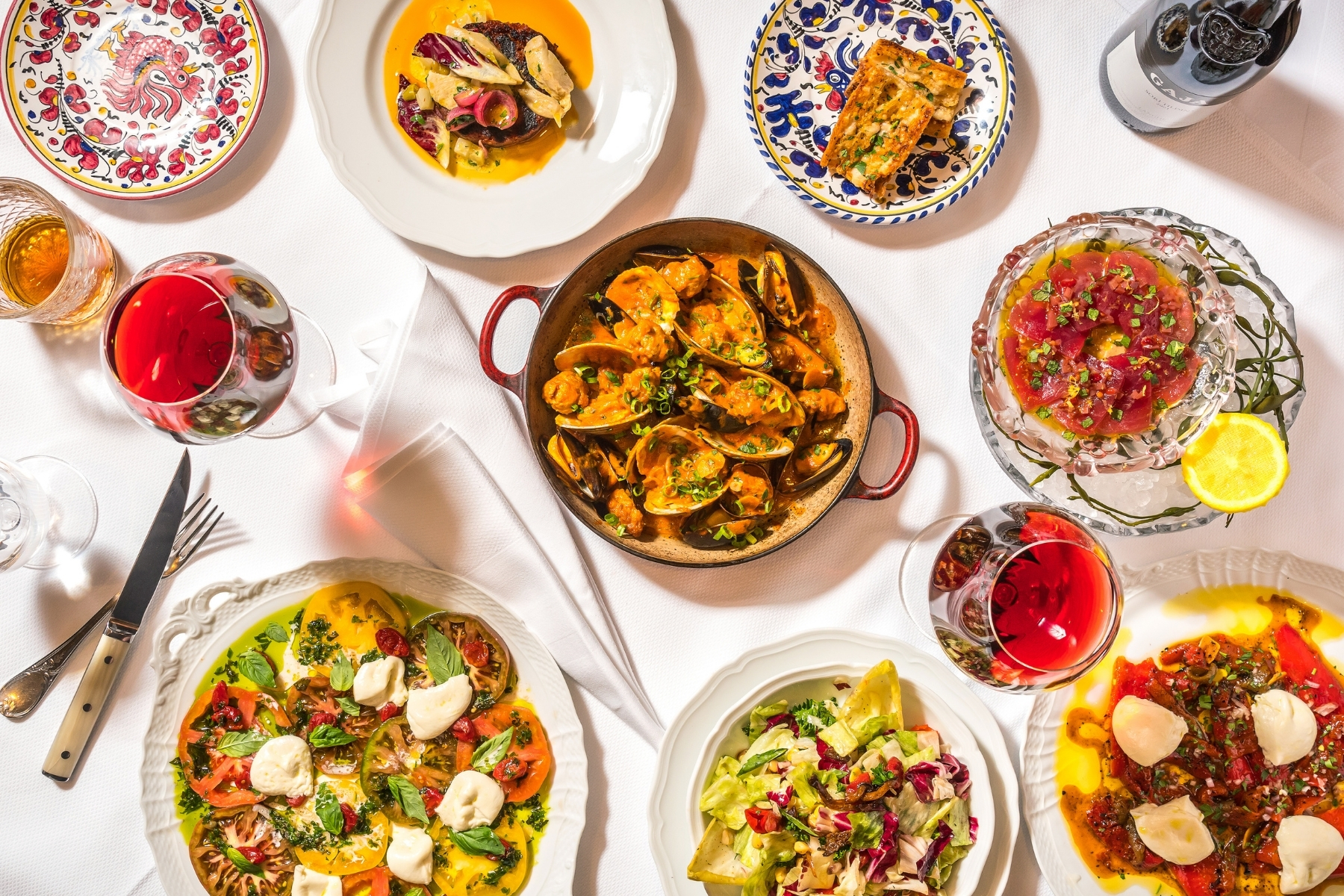
Now let’s get into the details. This interview has been edited and condensed for length and clarity.
Because there’s such a gap between the way that the average restaurant customer thinks about something like this, and the way that it would be argued in court, I thought it would be useful to go point by point and sort out, what is important? What is not?
In a typical trademark case, the plaintiff has to establish two things. They have to establish first that they own the trademark, and then they have to establish that there’s a likelihood of confusion between the one user’s mark and the other’s mark. And a mark, by the way, is just any word or phrase used to designate the source of someone’s goods.
I’ve done more than 100 trademark cases in 20 years. And in most cases, the issue is, my use, is it going to generate confusion among users? We lawyers look around to try to find evidence of either people being actually confused or circumstances that we [can] say to a court, “hey, we’re the same restaurant on the same street, it’s likely that people are going to be confused here.”
Carbone’s has just an embarrassment of riches when it comes to confusion evidence. I thought that was an extraordinary volume. The best evidence of confusion is someone who’s actually confused. That is like sort of the holy grail of trademark evidence for a plaintiff lawyer. And in most cases I’ve got to look under rocks. You’ve got to find that evidence.
When I read that complaint, it was like, wow, confusion’s probably not going to be an issue in this case, because you have meat purveyors delivering meat to the wrong place, you’ve got the log of the 1,400 people that called the wrong restaurant.
The city government sent a bill to the wrong restaurant.
I mean, it’s just an embarrassment of riches. The confusion element, it’s going to be hard to rebut, right?
So then—Carbone, what’s its defense going to be?
This is where we get into some wonky stuff. I think Carbone is going to say, “We filed what’s known as an intent to use application back in January 2012. Carbone’s, you didn’t open your restaurant until April 2012. We have established trademark rights that predate your opening by four months.”
It’s important to say here, Carbone’s does not have a registered trademark. They’re protected by common law, which most people only think about in terms of marriage. How does common law protect you in a case like this?
Trademark rights are established through use and you don’t have to register them. This is a common issue among family-owned smaller local businesses. They start using a word or phrase and they fail for whatever reason to go apply for a federal trademark.
Common law rights protect the user’s right to use that word or phrase within a specific geographic area. Here, probably Dallas, maybe a little wider than Dallas. It protects a specific geographical area, plus what we call a natural zone of expansion. Maybe Plano or Frisco. A federal registration, a piece of paper from the United States Patent and Trademark Office, gives you nationwide rights immediately once it’s registered.
It’s clear that Carbone’s has common law rights at least as of the date it opens, April of 2012. Put a pin in that, we’re gonna come back to that a minute. Now, Carbone didn’t open its restaurant till 2013, but they will say, because I filed my intent to use in January 2012, my nationwide priority rights go all the way back to the date.
What Carbone’s says in response to this is two things. The first is, well, hold on, we were using Carbone’s apostrophe ’S’ in commerce in 2011, when we were out there trying to get investors.
The Morning News says they put their sign up in 2011. And they had to do state of Texas paperwork, license applications, all that.
For sure. So Carbone’s says, look, our use is earlier than yours even if you consider the the intent to use application. The other interesting thing Carbone’s says is, look, even if we’re wrong about 2011, your application was defective when you filed it. They [Carbone] were trying to register a surname, which is hard to do.
Does it matter significantly that they both come by the name Carbone honestly? That one has a chef named Mario Carbone and the other has a grandfather named Angelo Carbone?
I don’t know that this case is going to turn on that. That’s precisely the reason that surnames are difficult to register with the USPTO. So many people have the same last name, and it’s hard to get one person a federal registration using their surname because there’s lots of other people who want to use their surname.
It’s difficult to register a surname. The only way is if it’s really famous and inextricably linked to the source. Think Disney. Or Johnson & Johnson. If you want to have a nationwide priority for your name, you have to prove your name is really linked to something like Disney is to animation or Ford is to cars.
Does it matter the uniqueness of the name? Contrast to if they were named Brown or Smith.
Yeah. The more unusual the name, the less obvious that it’s a surname, the more likely it is to get registered.
When Carbone registered its federal trademark, its justification was that “Carbone” was the Italian translation of the word “carbon.” It didn’t mention that it was the chef’s last name. Can a jury at this level decide if the Carbone trademark was inappropriately given?
Some fact-finder will ultimately decide. And I think some facts that either a judge or a jury is going to consider is—all right—this guy’s last name is Carbone. I don’t know of any other restaurants named after the element carbon. It just strikes me as a stretch.
The fact that they’re both using names is likely going to help Carbone’s more, because there’s a certain sort of jury appeal about seeing the picture of the guy’s grandfather on his wall. And then contrast that with what Carbone has said: “Hey, I’m just naming it after carbon.”
The other argument I expect Carbone will make [in its defense] is delay. I think Carbone is going to say, ‘We said we were coming to Dallas in August 2020. It was in all the newspapers, and Carbone’s had notice.’ They’ll say, “Rather than immediately go to court and try to prevent us from coming to Dallas with that name, he sat on his hands. As a result, because of his delay, the court should allow us to coexist.’
That’s also going to be a difficult uphill battle. But Carbone is digging in for a fight.
With the evidence of confusion, does it matter that they overlap in multiple businesses? They both sell Italian food, and they both sell jars of pasta sauce you can cook at home.
The Central Market stand is the most dramatic evidence of confusion I’ve seen in many years. The fact that Central Market was confused in setting up that display, that’s awfully powerful evidence.
Let me back up and explain the standard for likelihood of confusion. Courts ask, juries ask, is a reasonable consumer likely to confuse this word or phrase with this word or phrase? There are a bunch of tests or elements that courts look at. Do the words look or sound alike? Yeah, here they’re one letter different and they are pronounced identically. Do the companies operate in the same sort of area? Yeah, they’re restaurants. Okay. But are they the same kind of restaurant? Yeah. Then they’ll say, do they advertise in the same way? Yeah. They’re both on Yelp, they use social media, they’re on the web.
And then, does either side have evidence of actual confusion? In most of my cases, you might get one or two bits of actual evidence, but for the most part, I don’t have this kind of riches. Here, the actual confusion evidence is just gonna overwhelm all these other elements. Folks are confused. That’s going to overwhelm all these other things.
I bet there’s discussions right now at Carbone: “Do we really want to have this fight? Given the amount of confusion evidence we’ve seen?” You would think Carbone wouldn’t want confused people, either. When I’m on the defense side of these things, often my client’s like, “I don’t want this dispute, not because I want to steal, but I don’t want people to be confused either. I want my customers to come to me and their customers to go to them.”
Both restaurants have very, very good reputations. They’re very well liked and they have a lot of fans. Is that relevant?
Carbone’s doesn’t have the registered trademark. It has the common law trademark, but Carbone’s will be able to show that its mark is that much more valuable because of the fact that it has a sterling reputation.
These are both well-loved, established brands. What does a good solution look like?
Absent a jury trial, we typically settle these cases. The settlements fall into a handful of buckets.
One is that one or the other side, in exchange for some kind of payment, will agree to rebrand. I’ve been in the same situation in other industries, where my clients say, even though we were the first user, we may be the smaller entity, it’d be easier for us to rebrand.
Sometimes we will take or make a payment that’s calculated to estimate the cost of rebranding. If you’ll change your name, we’ll pay for signage, we’ll pay for menu printing, sometimes social media has to be changed. Sometimes there’d be an amount of money for advertising to reestablish the brand in the market. So there might be a specific sum that’s earmarked for TV, radio, internet.
Another way these things are resolved is by coexistence. Typically when parties decide they want to coexist, one or the other or both will add additional words or phrases to the name, to diminish or dispel consumer confusion.
So think “Carbone: A New York Eatery.” Or “New York Carbone.”
“Carbone of New York.”
Yeah. And that’s one way to do it.
Typically people will agree to coexistence in situations where their businesses do not completely overlap. If Carbone didn’t have a restaurant but was only selling pre-made food, and Carbone’s had the restaurant but wasn’t selling pre-made foods and sauces, they might be able to agree. But here there’s such a complete overlap of service—and they’re on the same street—and they’re both selling Italian food. I just think it’s unlikely that they’ll agree that the addition of words or phrases are going to solve this problem.
I’ve seen solutions where the late entrant, here Carbone, just acquires the other business entirely. Because it believes the name is so valuable.
The other thing is that Carbone is expanding rapidly. They’re opening in Miami, Las Vegas, Hong Kong.
I’m totally speculating, but there could be a solution that requires Carbone to change its name only in Dallas, but maintain its name in all these other cities. I think it’s probably going to come down to someone agreeing to change their name.
Author



